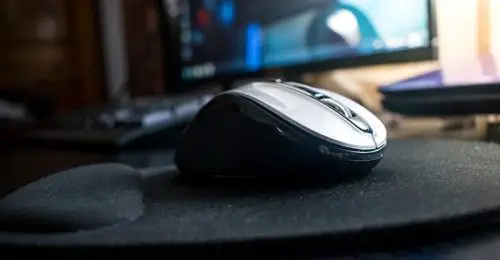INTJ Personality Type- The Architect: Are people consistently asking you questions like “Why are you such a planner? Loosen up, will you?” or “Can’t you stop being so uptight?”
Do you think you’re a bit of a pain to work with? A judgmental critic?

Inspiring your journey, one story at a time. #LifeFalcon.
Do you find it ridiculous how people can have a 15-people group of ‘close friends’ whereas you only seem to have three people in your life that you trust?
Well, it sounds like you’re an INTJ!
INTJ is one of the introverted personality types from the Analysts (NT) group of the 16 personality test based on Carl Jung’s theory and the Myers- Briggs Indicator.
Taking the example of some well-known people such as Elon Musk or Stephen Hawking, INTJs are generally very intellectual, imaginative, and private people.
Also known as the Architect or the mastermind personality, on the surface, INTJs seem quite introverted and often think that they’re intellectually better than everyone else!
Their hunger for success drives them and keeps them focused. There’s little that can distract INTJs from whatever their goals may be.
When others might look for approval or validation from others, INTJs tend to be quite confident in their abilities to succeed.
However, looking underneath this driven, introverted surface, we see that it can often get quite lonely as an INTJ because they’re used to relying on themselves only.
Interested in learning more about what an INTJ is like? Keep on reading to find out! Make sure you also check out the ENTJ Personality as well.
Table of Content
Personality aspects of an INTJ

Each letter in the acronym of a personality type (aka INTJ) describes a person’s preference in 5 different aspects of life.
These aspects of life include mind, energy, nature, tactics, and identity.
The Mind aspect describes our interactions with the environment. The energy aspect describes our view of the world and how we process it.
Nature describes how we deal with emotions and tackle decision- making where-as tactic describes how we deal with day- to- day tasks in terms of planning.
Finally, our overall confidence in our abilities and decisions is described by the identity aspect.
In INTJs, these preferences are Introverted (mind), Intuitive (energy), Thinking (nature), and Judging (tactics).
The Identity trait can either be Assertive (A) or Turbulent (T) and varies from person to person.
People with the assertive trait tend to be a lot more carefree where-as those with the turbulent aspect are quite self- conscious.
Let’s take a closer look at what each of these traits signifies in the personality of an INTJ.
Introverted (I)
Being introverted, INTJs generally give out energy in social settings rather than energizing themselves through it.
After an outing, they’ll need to take some time off by themselves to recharge.
INTJs focus more on what’s inside their heads than the world around them.
INTJs would much rather not waste their time in mindless chatter and will only jump in on conversations that truly inspire them and resonate with them.
This can often make them come off as quite reserved and serious in front of others.
Intuitive (N)
Intuitivism, along with Thinking, is one of the common traits shared by all personalities of the analyst category.
It refers to how INTJs can spot patterns and different possibilities in their life rather than simply observing what goes on in their surroundings.
Thinking (T)
INTJs use their stored knowledge to analyze every situation in their lives through sound logic and reasoning rather than looking at it from an emotional point of view.
This can make them highly skilled at judging their environments, guessing other people’s perspectives, and having an incredible foresight about future complications.
Judging (J)
Unlike the prospecting trait, judging implies that INTJs prefer a certain structure in their lives.
From planning out their diets, to making countless to-do lists, to making long term career plans, they like to have their life in order rather than just ‘winging it’ and ‘going in the flow’.
The combination of these traits contributes to the following strengths and weaknesses of an INTJ.
Strengths of an INTJ
They are Self- confident
INTJs spend a lot of their time constantly learning and adding to their book of knowledge.
They are very confident in their abilities because they have such a highly logical mind that’s constantly analyzing everything around it with what they’ve learned.
In both their personal life and their workplace, they’ll exude a very direct communication style that’s going to speak up for what they believe is right with assurance.
In the mind of an INTJ, either something is rational or it’s wrong so good luck trying to convince them that they’re wrong.
Once they’ve made up their mind, they will hold their ground and other people’s opinions, (regardless of their authority or social standing) won’t change that.
They thrive independently
From working to traveling to going about their daily life, INTJs have a sense of independence in whatever they do.
They rely solely on themselves to fulfill their needs and get to wherever they want in life.
They learn pretty early on that it’s often every man for himself in this world and use that to push themselves.
Working with other people makes them feel like they have to slow down and INTJs will not wait for others to catch up.
They are quick in getting things done and will not be held back by other people’s shortcomings.
They are tolerant and open-minded
Because INTJs like to form their logic about everything, they aren’t the biggest fans of rules and traditions.
They won’t take ‘this is how it’s always been done’ as an explanation for something they disagree with.
This quality makes them more tolerant and open-minded, especially where social issues are concerned.
If they don’t see anything logically wrong with it, they don’t see why it can’t be done or needs to be opposed.
Along with that, if they do disagree with something, they will speak up about it.
They are goal-oriented
Once INTJs put their minds to something, they’ll spend countless hours working on it until they get it done perfectly.
They have brilliant and analytical minds
With their brilliant and strategic mind, INTJs can foresee complications and devise workable plans to counter them and prevent problems.
This comes quite naturally to them and without putting in a conscious effort or calculating, they can even do simple tasks like estimate how many chairs will be needed to fill up a room.
Weaknesses of an INTJ
They can get caught up in their heads
Even though INTJs do not stress about school and academics, they have been reported to show high levels of stress about careers, finances, and relationships.
At times, INTJs can form a very unrealistic idea of success in their heads that tends to be very superficial and materialistic.
When their mind gets wrapped up in a goal that’s basically impossible to achieve, it can result in depression, anxieties, bitterness, low- self-esteem issues, and angry outbursts.
They find it hard to fit in
With their inappropriately timed dark humor and poor bedside manners, INTJs find it very hard to fit in with people around them.
They don’t see the point in sugar-coating things and because of their brutal honesty; they can be viewed as rude and unpleasant by those who don’t understand them.
Their failure to recognize how their harsh words can hurt others only causes more damage to their reputation.
They have a judgmental and arrogant attitude
When it comes to intellect, INTJs have a ‘holier than thou’ attitude towards their inferiors. Anyone who fails to understand what they understand is immediately dismissed.
If anyone considered inferior by an INTJ tries to criticize them, they’ll probably just be criticized in return rather than being taken seriously.
If this trait isn’t controlled, then such INTJs are constantly under the impression that all misunderstandings and mistakes simply occur because of other people’s shortcomings and not their own.
They forget to live in the moment
INTJs can get so hyper-fixated on the details of their plans and goals that they forget to live in the moment.
They might rethink the same scenario multiple times (from different angles) until their mind is filled with worry. They lose valuable sleep time and end up frustrated.
This can even result in them going overboard with strenuous physical activities such as exercise, cleaning, or cooking.
Basically anything that momentarily distracts their minds from getting caught up in useless details.
INTJs in Relationships
While they may excel in their workplace, INTJs don’t have too much luck when it comes to relationships!
This is because when it comes to relationships, INTJs tend to be more emotionally distant and calculated than most people.
We all know that a relationship is no place to be analyzing every step based solely on logic.
People are unpredictable and complex beings that often feel too much.
You can’t predict everything a person might do or where a relationship might lead which is exactly why INTJs struggle with them.
They’re very picky with partners
INTJs are very particular about the people they choose to surround themselves with. They tend to only associate with people who can somewhat reach their level of intelligence.
When looking for a partner, INTJs prefer to live in their bubble and let people come to them instead of putting themselves in a dating pool.
One of the most important things for an INTJ is their sense of moral code- aka, what they consider right and wrong.
This is not something they are ready to compromise over and if your moral code doesn’t match theirs, you won’t be a match for them.
They value honesty
Once an INTJ finds a partner, they want it to be a very honest relationship. You need to be very open and clear about what you’re looking for in the relationship, your boundaries and expectations, etc.
Don’t give INTJs mixed signals or beat around the bush when you disagree on something.
If you’re honest, it’s very likely that they will genuinely listen and try to correct their mistakes.
They don’t navigate emotions very well
INTJs most certainly have a bit of trouble sharing emotions and opening up.
Especially when life gets tough, rather than reaching out, they feel more comfortable detaching themselves from people close to them, which can be quite alienating for you.
The best course of action is to talk it out with them. Let them know that you notice their off moods and are there to help them through anything they need.
Along with being closed off, INTJs’ inability to fully acknowledge emotions means that they can often end up being quite rude and blunt at inappropriate times.
However, at the end of the day, because they are in a relationship with you, despite not always showing it, they do genuinely value you in their life.
You might not get the weekly candlelit picnics but if you show them that they mean a lot to you, you’ll most definitely see them grow to be more expressive and affectionate.
INTJs in Friendships
Friendships come a little easier to INTJs than romantic relationships; however, they’re still tricky for them to navigate.
As with relationships, they are very careful and picky about their friends.
If they’re sitting in a crowd, they will zone out and not bother to contribute the conversation until a topic spikes their interest.
However, once that happens, you’ll be introduced to the intellectual person behind the introverted mask.
And based on how well the conversation goes, you might end up with a new friend!
If you get close to an INTJ, know that you’re one of the special ones who they consider as their intellectual soul mate.
Of course, the constant need to improve themselves will shine through in the friendship. If they’re moving forward and improving in a certain aspect of their life, they’ll probably expect you to do the same.
However, at the end of the day, with their dark humor and sarcasm, and a little bit of acceptance from your end, you’ll have a very loyal (and sorta unique) friend by your side!
INTJs as Parents
If you think you’ve got an INTJ as a parent, well, good luck!
Just kidding… sort of!
Even though they love their kids deeply, INTJ parents often struggle to show their caring and supportive side to their kids.
However, the perfectionist in them is quite determined to make sure they raise their kids just right.
Since they have a more intellectual mindset and like to draw their own conclusions, they end up adopting their parenting style rather than following norms.
This style is based on their personal experience with life and rules in general.
So for example, if you’re in a neighborhood where parents generally don’t believe in kids being able to go out after dark, yours might be a little more liberal than that.
That in no way means that they won’t expect you to follow the rules they lay down for you.
Because they will, strictly!
Even though they tend to be closed off about personal problems and only express their love through small gestures, they still ace their role as parents.
They’ll try to instill all of the critical values they believe to be important in life to their kids, from logical reasoning to problem-solving and proper time management skills.
INTJs’ workplace habits and career choices
As we know by now, INTJs strive for perfection in all aspects of their lives. Their workplace is no different.
Not only do they want the utmost perfection in their work, but they are also very structured and organized with how they get their work done.
If there’s a group task, they’ll expect equal contribution and honest feedback from everyone on the given suggestions. Then they’ll assign tasks to whoever they think can get the job done best.
However, INTJs work best when they’re by themselves. They don’t like working under strict regulations as limitations make them feel frustrated.
INTJs carry their code of conduct into their workplace as well. They like to be open-minded and if there’s a policy they disagree with, they’ll march right into their boss’s office to let them know.
Based on this, some of the careers that INTJ personality types thrive in are Project managers and IT or mathematics-related jobs such as computer programmers, software engineers, and computer system analysts.
Conclusion
Based on the info given in this article, do you think you’ll be able to spot the INTJs in your life?
And if you already know an INTJ (or are one), hopefully now you understand why they act a certain way!
Just try to focus on how brilliant they are and let their occasional, rude remarks slide!



















